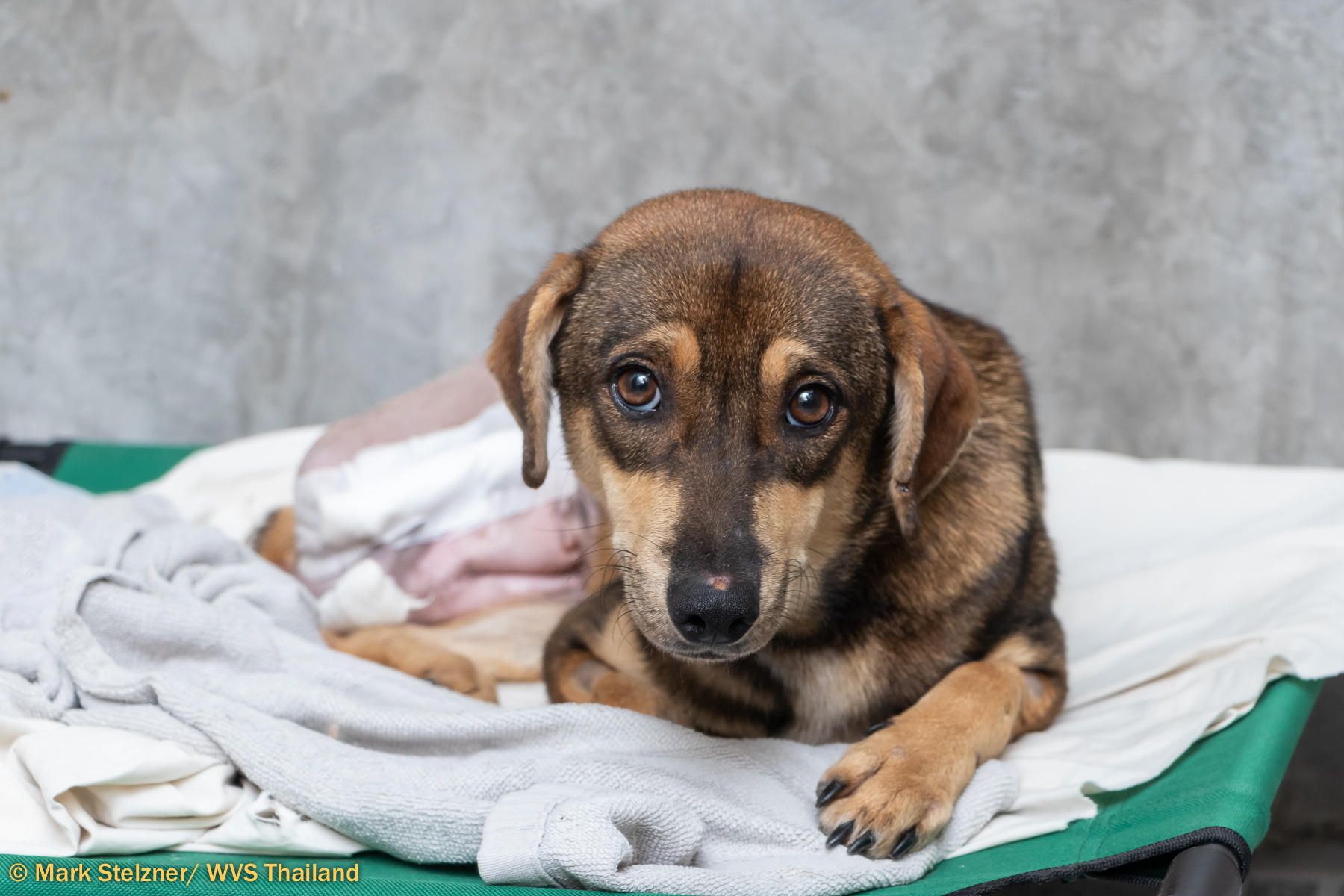This is 'Chaba,' the world's most photogenic dog (in our proud opinion) and sadly, a recent critical care patient at our veterinary centre in Thailand.

For dogs like Chaba, street dogs in Thailand, road traffic accidents are sadly often and can be deadly. Chaba was only one year old when she was hit by a car. The accident left her with a terrible degloving wound on her right hind leg. Chaba needed immediate veterinary treatment and care.
She was brought to our vets who took a series of x-rays to reveal there were signs of osteomyelitis around the tibiotarsal joint. There was an infection in her damaged bone.
After a remote consultation with a specilaised orthopaedic surgeon, Professor Robert Pettitt from the UK, the difficult but necessary decision was made to amputate her leg.
Under general anaesthetic with the aid of epidural anaesthesia, injected into the epidural space around the spinal cord, the veterinary team performed a full femoral disarticulation to remove the leg.
Chaba recovered well post-surgery, supported by pain relief medication, antibiotics and round-the-clock care. The epidural anesthesia also made a significant difference in controlling the intra-operative pain, allowing a quicker and less painful recovery.

Despite the accident and horrific injuries she'd endured, Chaba's smile never once faded.

When she was ready, it was time to find three-legged Chaba a new home off the streets.
Our team reached out to the community and to no surprise, they received several good applications. They chose the best home for Chaba and placed her with a great Thai-British family, who have already changed Chaba's life for the better.

You can help dogs like Chaba in their hour of need. Donate, fundraise or volunteer to help us provide free veterinary treatment and care to animals around the world.